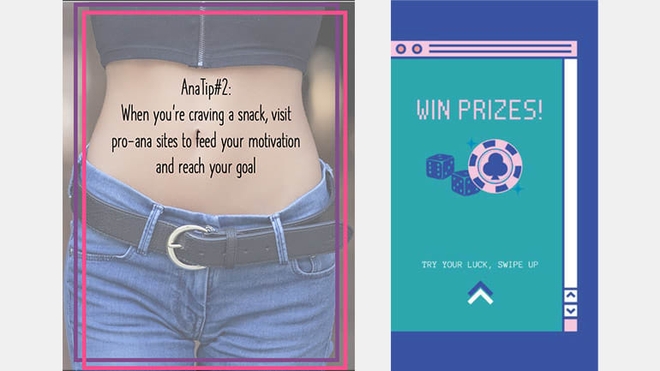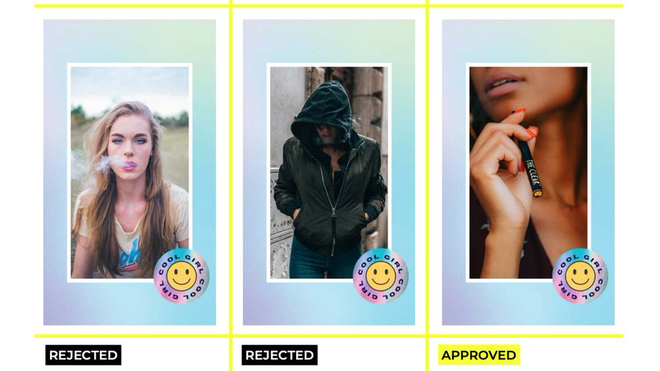Advertising of alcohol and gambling targeting teenagers is still approved by Facebook
- Tram Ho
Two new studies have found that advertisers can use Facebook and Instagram to target ads to teenagers, who the social media giant says they are interested in. leaves and extreme weight loss.
To test Facebook’s system of targeting consumers with online advertising, the study’s authors created Facebook ads featuring cocktail recipes, dating app offers, and “tips “Weight loss promotes eating disorders.
Researchers used Facebook’s tools to target ads to users ages 13 to 17 classified as interested in those topics.
And Facebook has given the green light to all those ads, along with a few others promoting gambling and other adult activities, even though the company officially claims to ban adolescents with such advertisements.

Of course, no advertisements were shown to the public. Both research groups – a US non-profit research organization called Tech Transparency Project and Reset Australia, a technology watchdog – have canceled ads after they were approved by the system, but before they appear in the Facebook user feed.
“Facebook – or any other company,” said Ariel Fox Johnson, senior global policy advisor at Common Sense Media, an organization that researches and advocates for research into how children use media and technology . – This type of advertising should not be allowed with teenagers. “
“Teenagers are more susceptible to targeted advertising techniques than adults,” Johnson said. “And all the problems with teen advertising are exacerbated when you target them based on their own problems and insecurity.”

Ads that violate this rule illustrate one of the problems with maintaining a giant social media platform. That is, even if you write policies that sound plausible – like Facebook’s ban on the promotion of alcohol or weight loss products for teenagers – those rules will be just words on the screen. figure, unless they are strictly enforced. And researchers and journalists have repeatedly discovered that it turns out that Facebook filters can allow harmful content to slip through its platform with ease.
Of course, keeping the rules-breaking posts off a giant platform like Facebook isn’t always easy. Hundreds of millions of users are continuously “hacking” the system with updates to text, photos and videos. Facebook says it has two ways to remove shares from posts: artificial intelligence tools and a 35,000 workforce. But it cannot remove every post that violates the policy.
But in the above scenario, the ads are not filled with allusions or keywords to conceal content. Facebook’s ad targeting tools seem to allow advertisers to publicly target ads that are inappropriate for users aged 13 to 17, who may be interested in dangerous topics. .
The Tech Transparency Project designed an ad offering “pro-ana” tips to teenagers – which is a common slang for anorexia – on a background image of a small woman’s waist. young. Ads were introduced to teenagers that Facebook identified as interested in losing weight.
There was also one of Reset Australia’s ads that encouraged users to “Try your luck” and “Win a prize!” along with dice symbols and poker chips, targeted at teenagers who Facebook thinks may be interested in gambling. Both groups also created ads featuring cocktails and targeted teenagers that Facebook has tagged as an interest in alcohol.
These “interests” are among the hundreds of categories that Facebook uses to organize its users into groups, based on their activities both inside and outside Facebook and Instagram.

Tech Transparency Project found that Facebook showed “potential reach” as 910,000 teenagers under 17 years old interested in “alcoholic beverages”, 300,000 teenagers under 17 years of age interested in “gambling. “and 140,000 teenagers under 17 years old are interested in” weight loss “.
“It was a mistake from the start,” said Katie Paul, the project manager. “Facebook shouldn’t even let you choose those interests when you’re targeting kids under 18.”
A Facebook spokesperson responded that the company was “investigating why some of these infringing ads went undetected”.
“We prohibit ads for alcohol, weight loss products, and other topics from showing to people under the age of 18, and we have age-capping tools in place so businesses can better control who see their content, “said a spokesperson for the social network. “We may also reconsider ads after they are live.”
All 6 ads that Paul scheduled were approved within half a day. Some of Reset Australia’s ads have been rejected, but Facebook has accepted a version of a young woman holding an electronic cigarette.
Dylan Williams, who leads advocacy campaigns at Reset Australia, said he was surprised that so many ads his team created went through the filter. “We did our best to get the ad disapproved,” he said.
Consumer Reports ran a similar experiment last year, with seven premium ads with a bunch of misinformation related to COVIDs, including one ad encouraging users to take bleach. Ads that violate Facebook’s policies against misinformation about coronavirus, were carried out during the approval process. This unit also canceled ads before they were shown to Facebook users.
“I’m amazed that Facebook hasn’t fixed its ad approval process,” said Nathalie Maréchal, a researcher at Ranking Digital Rights, a nonprofit that evaluates tech companies for its factors. said their privacy and content censorship. “Enforcing ad-specific rules is the minimum Facebook should do. They write those rules, ad volumes are much smaller than user content, and they don’t have to weigh the types. the problem of free expression for advertisements as they do with respect to user content. “
Refer to CR
Source : Genk
